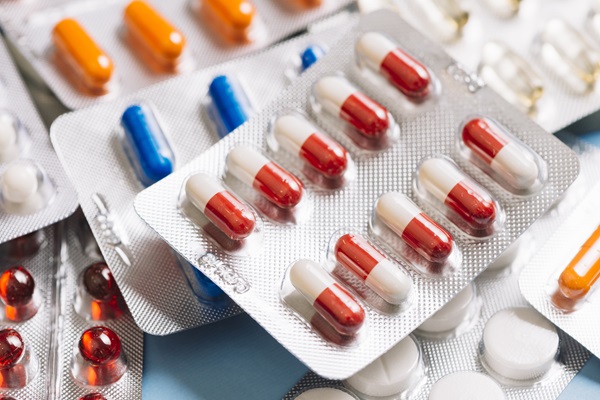Antibiotics have long been hailed as medical marvels, enabling us to combat bacterial infections with remarkable efficacy. Their discovery and widespread use transformed the world of medicine, allowing us to conquer diseases that were once death sentences. However, as with any powerful tool, the indiscriminate or excessive use of antibiotics comes with a price. In this article, we explore why too much antibiotics is bad and examine the potential consequences and risks associated with this common medical practice.

Antibiotics: Miraculous Weapons Against Bacteria
In the early 20th century, the world was introduced to a medical breakthrough – antibiotics. Derived from the Greek words “anti,” meaning against, and “bios,” meaning life, antibiotics are compounds or drugs designed to inhibit the growth or survival of bacteria. They were a serendipitous discovery, arising from the curiosity and tenacity of early scientists.
Antibiotics function through a variety of mechanisms. Some interfere with bacterial cell walls, causing them to burst, while others target vital bacterial processes, essentially crippling them. These diverse mechanisms make antibiotics a formidable weapon in our fight against bacterial infections.
The Importance of Antibiotics in Medicine and Agriculture
Antibiotics in Medicine
In the realm of medicine, antibiotics have been nothing short of miraculous. They’ve made surgeries safer, treated once-deadly infections, and prolonged countless lives. From life-threatening pneumonia to bacterial meningitis, antibiotics have been a stalwart ally in the physician’s arsenal. Yet, their widespread use has had unforeseen consequences.
Antibiotics in Agriculture
However, antibiotics don’t stop at hospital doors. They play a pivotal role in agriculture. Livestock are often administered antibiotics to stimulate growth and prevent disease in crowded conditions. This practice, while beneficial for agricultural production, has raised concerns about antibiotic residues in our food supply.
The ubiquity of antibiotics in medicine and agriculture has cast them as both saviors and silent menaces, requiring a delicate balance to harness their benefits without succumbing to their risks.
The Looming Threat of Antibiotic Resistance
The Stealthy Rise of Antibiotic Resistance
While antibiotics have saved countless lives, the ease with which they were once prescribed, and in some cases, overprescribed, has led to an alarming consequence – antibiotic resistance. This is a global problem where bacteria evolve and adapt to the drugs designed to kill them.
The Evolution of Resistance
Antibiotic resistance occurs when bacteria, with their impressive ability to adapt and evolve, develop strategies to evade antibiotics. The indiscriminate use and misuse of these drugs have expedited the rise of resistant bacterial strains.
A Global Health Threat
Antibiotic resistance is not a localized issue; it’s a global threat. Resistant bacteria can cross borders and infect individuals, rendering infections difficult or even impossible to treat. This has severe implications for public health and the effectiveness of modern medicine.

Overprescribing and Overuse: A Growing Concern
The Overprescribing Dilemma
A pervasive issue in healthcare is the overprescription of antibiotics. Healthcare providers often face pressure to prescribe antibiotics, sometimes unnecessarily. This practice, driven by patient expectations and concerns, has become a significant driver of antibiotic resistance.
Misuse in Treating Common Illnesses
Conditions like the common cold, sore throat, and bronchitis are typically caused by viruses, against which antibiotics are powerless. Nonetheless, these drugs are frequently prescribed for such ailments, contributing to overuse.
Antibiotics for Viral Infections: A Common Misconception
The misunderstanding that antibiotics are a panacea for all infections, including viral ones, has resulted in their overuse. This not only fails to provide relief for viral infections but also fuels the development of antibiotic-resistant bacteria.
Why Too Much Antibiotics Is Bad?
Gastrointestinal Upset and Diarrhea
One common consequence of antibiotic use is gastrointestinal upset and diarrhea. Antibiotics not only target harmful bacteria but also disrupt the delicate balance of beneficial bacteria in the gut, leading to digestive distress.
Allergic Reactions
Allergic reactions to antibiotics are another concern. Ranging from mild rashes to life-threatening anaphylactic shock, these reactions can occur, particularly with overuse and overexposure.
The Emergence of Drug-Resistant Bacteria
Perhaps the most dire risk is the emergence of drug-resistant bacteria. Overuse of antibiotics accelerates the development of resistant strains, creating infections that are difficult, if not impossible, to treat.
Impact on the Gut Microbiome
The Crucial Role of the Gut Microbiome
The gut microbiome, an intricate ecosystem of microorganisms residing in our intestines, plays a critical role in our overall health. Antibiotics can disrupt this delicate balance, causing a host of health issues.
Disrupting Microbial Harmony
Antibiotics, in their quest to combat harmful bacteria, do not discriminate between beneficial and detrimental microbes. Their use can lead to an overgrowth of harmful microorganisms, which can cause various health problems.
Long-Term Health Implications
Changes in the gut microbiome resulting from antibiotic use can have lasting health consequences. There are associations with chronic conditions like obesity, autoimmune diseases, and even mental health disorders. Preserving the harmony of the gut is essential for overall well-being.

Antibiotics in Agriculture: A Silent Contributor to the Problem
Antibiotic Use in Livestock
In agriculture, antibiotics are often administered to livestock to promote growth and prevent diseases, particularly in crowded and unsanitary conditions.
Antibiotic Residues in Food
The use of antibiotics in agriculture can lead to antibiotic residues in meat and dairy products, ultimately entering our food supply. This indirect exposure has implications for human health.
Human Health Implications
The use of antibiotics in agriculture can indirectly affect human health by increasing our exposure to antibiotic-resistant bacteria through the food we consume.
Seeking Alternatives and Responsible Use
Probiotics and Prebiotics
An emerging alternative to antibiotics lies in the realm of probiotics and prebiotics. These substances promote the growth of beneficial bacteria in the gut, potentially mitigating the need for antibiotics.
Phage Therapy
Phage therapy, utilizing viruses (phages) that specifically infect and kill bacteria, offers a targeted approach to treat infections, potentially reducing the reliance on traditional antibiotics.
The Role of Education
Raising awareness about responsible antibiotic use, the risks of overuse, and the alternatives available is vital in addressing this issue. Healthcare providers and patients alike must be educated on the proper use of antibiotics.
Responsible Antibiotic Use
Doctor-Patient Communication
Clear and open communication between healthcare providers and patients is crucial. Patients should be informed about the appropriate use of antibiotics and the potential risks associated with their overuse.
Completing the Full Course
Patients must adhere to prescribed antibiotic courses and complete them, even if their symptoms improve before the course ends. Stopping prematurely can lead to the development of antibiotic resistance.
Antibiotic Stewardship Programs
Healthcare facilities and organizations have implemented antibiotic stewardship programs to monitor and optimize antibiotic use, promoting their responsible and effective utilization.
Conclusion
Antibiotics are valuable medications used to treat bacterial infections, but their overuse or misuse can lead to adverse effects on health. Why too much antibiotics is bad becomes evident when considering the development of antibiotic resistance. Overexposure to antibiotics can contribute to the emergence of resistant strains of bacteria, rendering these medications less effective in treating infections. This phenomenon poses a significant public health threat, as it limits treatment options and increases the risk of prolonged illness or even life-threatening infections.
Moreover, why too much antibiotics is bad extends beyond antibiotic resistance to include disruptions in the body’s natural microbiome. The microbiome refers to the diverse community of microorganisms living in and on the human body, which play a crucial role in maintaining health. Excessive antibiotic use can disturb the balance of this microbiome, leading to dysbiosis, or microbial imbalance.
Our collective responsibility is to preserve the power of antibiotics for future generations. In doing so, we can continue to harness these remarkable compounds to combat bacterial infections while averting the grim prospect of a post-antibiotic era.
The risks of using antibiotics too often are significant, but they are not insurmountable. Through awareness, education, responsible use, and the exploration of alternatives, we can tip the scales back in favor of these invaluable medical tools. In the end, it’s not just a matter of prescribing or taking a pill; it’s a matter of preserving the health and well-being of all humanity.
Antibiotics: Handle with Care.


